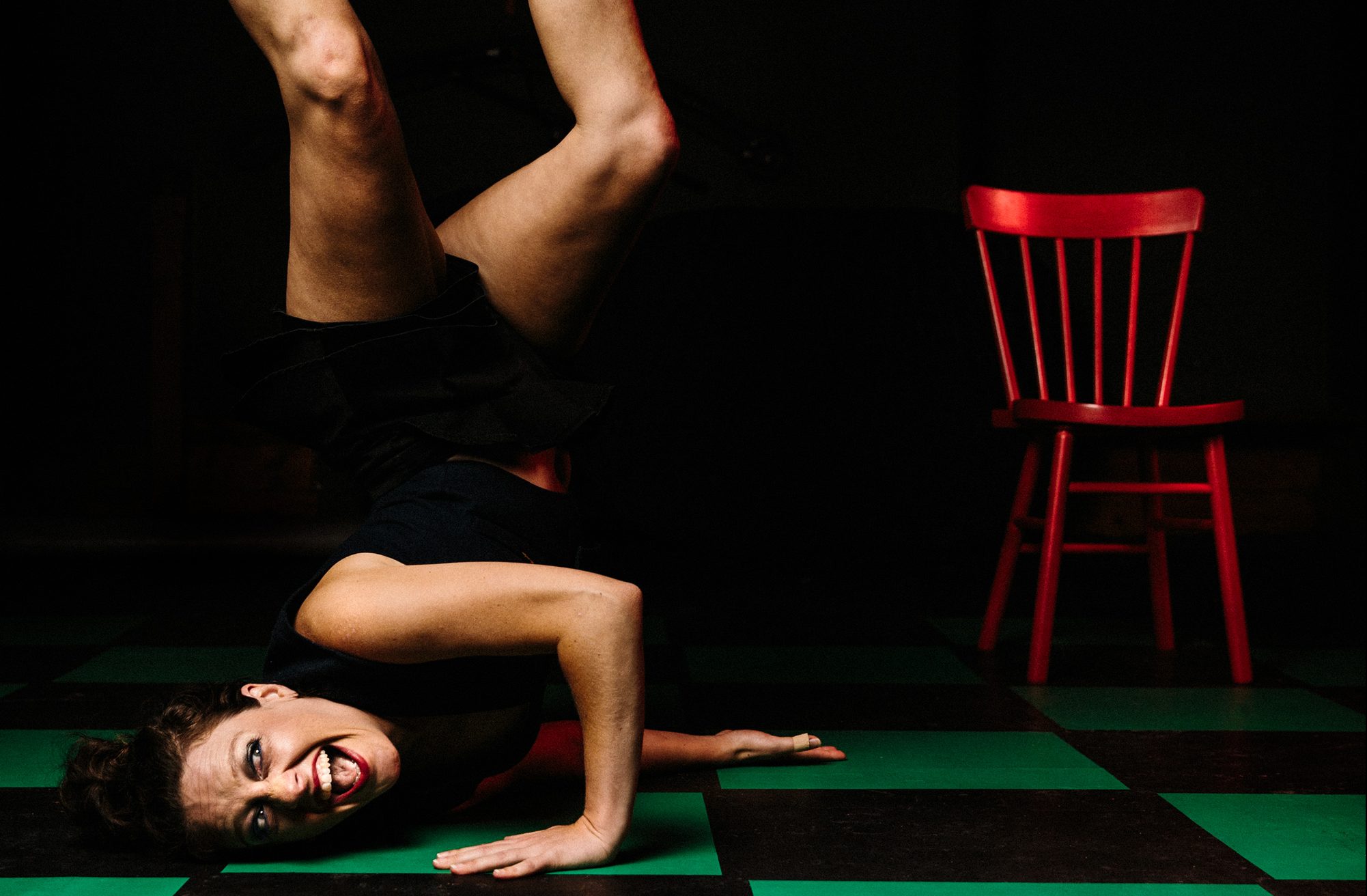★★★★
In the second dance of the five which make up the core of her solo show, Andi Snelling jumps onto a chair. She produces, seemingly out of nowhere, a roll of butcher’s paper and, with a flick of her arms, sends it unrolling like a red carpet in front of her.
The stage is a bit too small – The Burrow, the chosen venue, is a shopfront on Brunswick Street in Fitzroy converted into a little black-box theatre – and the only place the paper-carpet can go is down the aisle, which also serves as the performance space’s only exit.
It’s probably a fire hazard, but as the show reminds us, life is dangerous. She jumps down from her chair and starts running in place, kicking the paper up in her wake. She repeats the pattern two more times – jump on chair, roll out paper, use paper as treadmill. All the while, her movements are losing cohesion, and she is starting to grunt with what may be real pain.
Happy-Go-Wrong is about Snelling’s experiences with Lyme disease, a tick-borne infection that can, as in her case, turn into a horrible – and horribly misunderstood – chronic illness associated with muscular and joint pain, among other symptoms.
I saw the play on opening night and hoped the pain wasn’t real, but, at least by the end of the show’s two-week run, it surely will be. Few people with chronic physical illnesses choose to become professional dancers, but many of them do the work of dancers: pushing up against their own physical limits every day.
They become fluent in the intricate languages of their own bodies. In a way, it’s hard to imagine a more direct exploration of living in a less able body than this, or a performer more suitable than Snelling. She hurts herself and she wants you to know she is hurting, thereby making her invisible illness as real as it no doubt feels to her most days of her life.
But not everything in Happy-Go-Wrong is handled directly. Snelling’s personal story is not up for grabs. Although she is a character in her play, she rarely plays herself, opting instead to frame the dances with a narrative in which she plays Lucky, her own guardian angel (a French one, for no apparent reason other than she can do a good bad French accent).
From the moment she emerges as Lucky, she seems so sure the audience is putty in her hands that it becomes true. But this framing device feels inadequate, and the transitions between Lucky’s comic relief and Snelling’s intense, powerful physical theatre aren’t smooth. Perhaps if Snelling had injected more of her personal experiences into the production it could have made the dances feel more specific and the emotional payoff greater.
In fact, it’s possible to watch all of the play and not once pick up that Snelling has Lyme – actually it’s quite probable given the general population’s ignorance of the condition (not to mention the medical establishment’s). References to Lyme are few and oblique: “Who knew a problem as small as a tick could turn into Andi’s greatest work of art?” And that’s the clue: the purpose of the play is not to give an insight into what it’s like to live with a chronic illness (nor should it have to be), the purpose of the play is to be a great work of art.
Admittedly, that’s a bit bold (how many great works of art mention how they’re a great work of art?), but it’s also radically valuable. Andi the character comes to view herself, as many people with chronic illnesses do, as lucky – because her disease gives her a different perspective on the world, and she can make art out of it.
The work of turning your suffering into something meaningful is, like learning to listen to your body, work that all humans would be better off for doing but work that, for the chronically ill, is a matter of violent urgency.
That’s one of the contradictions of chronic illness: it is a curse that contains within it gifts, including a clearer picture of the world and a forced reckoning with your place in it.
Happy-Go-Wrong runs until Sunday September 29 (Saturday and Sunday are sold out). Grab your tickets here.







